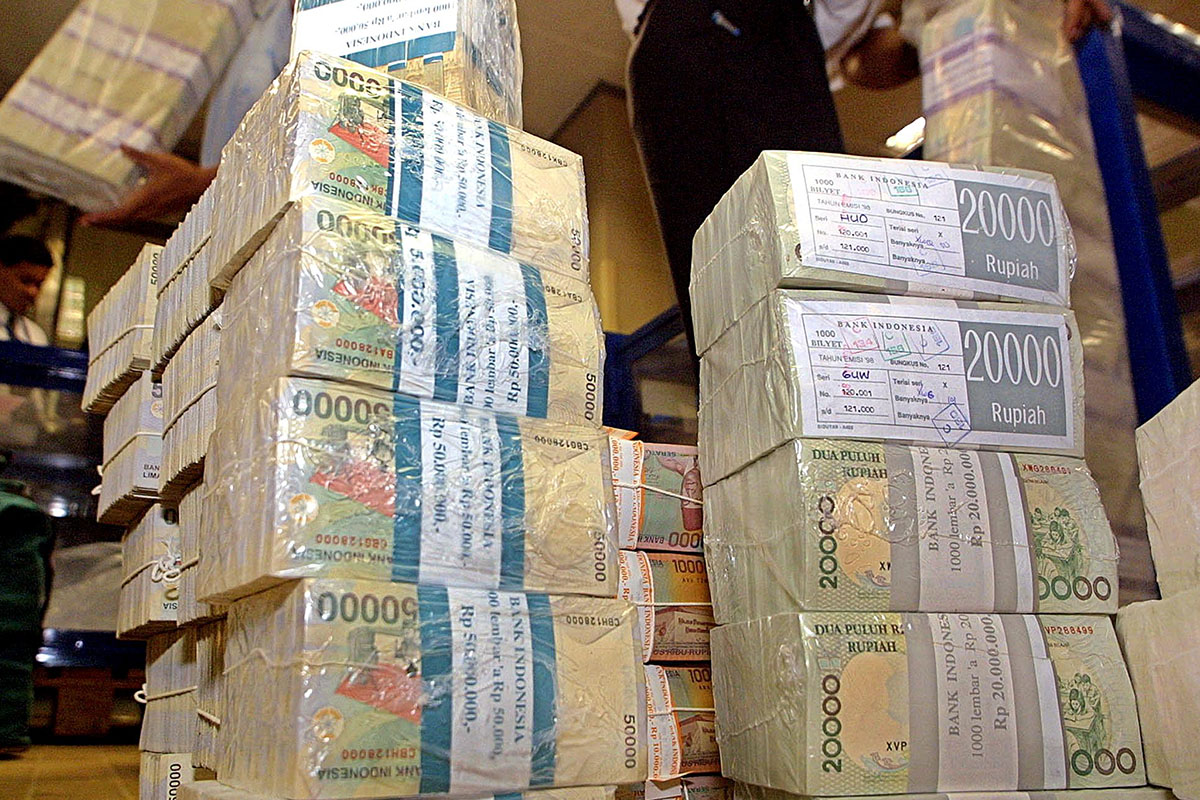Indonesia’s central bank is set to raise its benchmark interest rate for a third time since May in a bid to halt a deepening currency rout.
Southeast Asia’s biggest economy is struggling to fire and inflation remains subdued, but Bank Indonesia’s (BI) focus is squarely on the rupiah. Indonesia has been among the hardest hit in Asia in a global emerging-market sell-off triggered by higher United States (US) interest rates and a stronger dollar. The currency dropped to a new low of 14,398 against the US dollar on Thursday.
Of the 29 economists in a Bloomberg survey, 23 predict Governor Perry Warjiyo and his policy board will raise the benchmark interest rate by 25 basis points to five percent on Friday. The rest expect no change.
“Governor Warjiyo’s words and actions so far have clearly indicated that the bank has shifted policy focus from growth to stability,” said Charu Chanana, an economist at Continuum Economics in Singapore. The depreciation in the currency against the dollar since the last rate hike is likely to prompt another increase on Friday, she said.
Here’s what to watch for in the statement:
Rupiah rout
Despite two rate hikes in the space of two weeks in May, the nation’s currency has continued its slide and is among the worst performers in Asia this year, down more than five percent against the US dollar.
Warjiyo has signalled the board’s willingness to take more action on rates as it braces for further volatility stemming from policy moves in the US and Europe. “BI is ready to implement further policies to be pre-emptive, front-loading and ahead of the curve toward the new development of the Federal Reserve's (Fed) and European Central Bank's (ECB) policy course,” he said last week.
With the economy expanding at about five percent, but well short of the seven percent targeted by President Joko Widodo almost four years ago, the governor is also seeking to adjust macro-prudential measures to spur growth in the housing sector.
Investors have dumped almost US$1.9 billion worth of Indonesian bonds since April as a shrinking yield differential between the US and emerging markets spurred capital flight.
Inflation outlook
Inflation at 3.2 percent in May is still relatively benign and low by Indonesian standards. Price-growth peaked at 8.4 percent in December 2014 just a couple of months after Widodo, known as Jokowi, came to power.
While BI’s focus is on stabilizing the currency, it’s also mindful of price risks as the nation heads into a long election season. The cost of living and jobs are among voters’ key concerns and are clearly on Jokowi’s radar as he prepares for next year’s presidential poll. He has already taken steps to keep a lid on inflation by slapping controls on fuel prices and ordering additional imports of food staples.
A ratcheting up in trade tensions between the US and China is also putting policy makers on guard. Finance Minister Sri Mulyani Indrawati described the situation as a “dynamic” one, with “a new driver for the exchange rate from one day to another.” – Bloomberg
